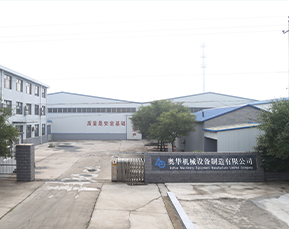 Afrikaans
Afrikaans  Albanian
Albanian  Amharic
Amharic  Arabic
Arabic  Armenian
Armenian  Azerbaijani
Azerbaijani  Basque
Basque  Belarusian
Belarusian  Bengali
Bengali  Bosnian
Bosnian  Bulgarian
Bulgarian  Catalan
Catalan  Cebuano
Cebuano  Corsican
Corsican  Croatian
Croatian  Czech
Czech  Danish
Danish  Dutch
Dutch  English
English  Esperanto
Esperanto  Estonian
Estonian  Finnish
Finnish  French
French  Frisian
Frisian  Galician
Galician  Georgian
Georgian  German
German  Greek
Greek  Gujarati
Gujarati  Haitian Creole
Haitian Creole  hausa
hausa  hawaiian
hawaiian  Hebrew
Hebrew  Hindi
Hindi  Miao
Miao  Hungarian
Hungarian  Icelandic
Icelandic  igbo
igbo  Indonesian
Indonesian  irish
irish  Italian
Italian  Japanese
Japanese  Javanese
Javanese  Kannada
Kannada  kazakh
kazakh  Khmer
Khmer  Rwandese
Rwandese  Korean
Korean  Kurdish
Kurdish  Kyrgyz
Kyrgyz  Lao
Lao  Latin
Latin  Latvian
Latvian  Lithuanian
Lithuanian  Luxembourgish
Luxembourgish  Macedonian
Macedonian  Malgashi
Malgashi  Malay
Malay  Malayalam
Malayalam  Maltese
Maltese  Maori
Maori  Marathi
Marathi  Mongolian
Mongolian  Myanmar
Myanmar  Nepali
Nepali  Norwegian
Norwegian  Norwegian
Norwegian  Occitan
Occitan  Pashto
Pashto  Persian
Persian  Polish
Polish  Portuguese
Portuguese  Punjabi
Punjabi  Romanian
Romanian  Russian
Russian  Samoan
Samoan  Scottish Gaelic
Scottish Gaelic  Serbian
Serbian  Sesotho
Sesotho  Shona
Shona  Sindhi
Sindhi  Sinhala
Sinhala  Slovak
Slovak  Slovenian
Slovenian  Somali
Somali  Spanish
Spanish  Sundanese
Sundanese  Swahili
Swahili  Swedish
Swedish  Tagalog
Tagalog  Tajik
Tajik  Tamil
Tamil  Tatar
Tatar  Telugu
Telugu  Thai
Thai  Turkish
Turkish  Turkmen
Turkmen  Ukrainian
Ukrainian  Urdu
Urdu  Uighur
Uighur  Uzbek
Uzbek  Vietnamese
Vietnamese  Welsh
Welsh  Bantu
Bantu  Yiddish
Yiddish  Yoruba
Yoruba  Zulu
Zulu conveyor belt brush scrapers
Conveyor Belt Brush Scrapers Enhancing Efficiency and Longevity
Conveyor systems are an essential backbone of many industries, facilitating the smooth movement of materials in manufacturing, mining, and food processing, among others. However, the efficiency of these systems can be significantly hampered by material build-up, spillage, and contamination. To combat these challenges, conveyor belt brush scrapers have emerged as a critical component in ensuring the effective operation and longevity of conveyor belts.
Understanding Conveyor Belt Brush Scrapers
Conveyor belt brush scrapers are specialized cleaning devices designed to remove residual materials from the surface of a conveyor belt. They consist of a base structure fitted with brushes made from durable materials capable of withstanding the rigors of industrial operations. These brushes are strategically arranged to contact the belt surface, agitating and removing debris as the belt moves, thus preventing material build-up that can lead to operational inefficiencies and potential belt damage.
Importance of Brush Scrapers
1. Preventing Material Build-Up Over time, residual materials can accumulate on the conveyor belt, leading to reduced efficiency and increased wear and tear. By effectively removing this debris, brush scrapers help maintain consistent performance and increase operational longevity.
2. Reducing Contamination In industries such as food processing, contamination is a major concern. Brush scrapers help minimize the risk of product contamination by ensuring that no residual materials are left on the conveyor belt, thereby adhering to strict hygiene standards.
3. Improving Safety A clean conveyor belt reduces the risk of slipping hazards that may arise from material spillage. By keeping the workplace clean and well-maintained, brush scrapers play a vital role in enhancing overall safety for workers.
4. Lowering Maintenance Costs Regular use of brush scrapers can lead to significant cost savings over time. By preventing material build-up and reducing wear on the conveyor system, businesses can lower maintenance costs and extend the lifespan of their equipment.
Types of Brush Scrapers
Conveyor belt brush scrapers come in various designs tailored for specific applications
conveyor belt brush scrapers

- Standard Brush Scrapers Suitable for general-purpose cleaning, these scrapers feature flexible bristles that effectively dislodge various debris types without damaging the conveyor belt.
- Heavy-Duty Brush Scrapers Designed for challenging environments, these scrapers utilize robust bristles and a sturdy frame to withstand heavy material loads and harsh conditions.
- Custom Brush Scrapers For specialized applications, custom scrapers can be designed to meet unique operational requirements, ensuring optimal cleaning and efficiency.
Best Practices for Implementation
To maximize the benefits of conveyor belt brush scrapers, it is essential to follow a few best practices
1. Proper Installation Ensure that scrapers are installed correctly to achieve maximum contact with the conveyor surface. This ensures effective cleaning without overextending the brushes.
2. Regular Maintenance Just like the conveyor belt itself, brush scrapers require regular inspection and maintenance. Periodically check for wear and replace brushes as necessary to ensure consistent performance.
3. Adaptation to Material Types Different materials require different brushing techniques. Assess the type of debris commonly encountered and choose scrapers with the appropriate bristle density and material.
4. Integration with Other Cleaning Systems For optimal cleanliness, consider integrating brush scrapers with other cleaning technologies, such as rotary drum cleaners or wash-down systems, to provide comprehensive belt maintenance.
Conclusion
As industries increasingly prioritize efficiency and safety, conveyor belt brush scrapers offer a practical solution to ensure the smooth operation of conveyor systems. By preventing material build-up and contamination, these devices play a vital role in enhancing productivity and reducing operational costs. Investing in quality brush scrapers and adhering to best practices will undoubtedly lead to a more efficient and reliable conveyor operation, benefiting businesses in the long run.
-
Revolutionizing Conveyor Reliability with Advanced Rubber Lagging PulleysNewsJul.22,2025
-
Powering Precision and Durability with Expert Manufacturers of Conveyor ComponentsNewsJul.22,2025
-
Optimizing Conveyor Systems with Advanced Conveyor AccessoriesNewsJul.22,2025
-
Maximize Conveyor Efficiency with Quality Conveyor Idler PulleysNewsJul.22,2025
-
Future-Proof Your Conveyor System with High-Performance Polyurethane RollerNewsJul.22,2025
-
Driving Efficiency Forward with Quality Idlers and RollersNewsJul.22,2025





























